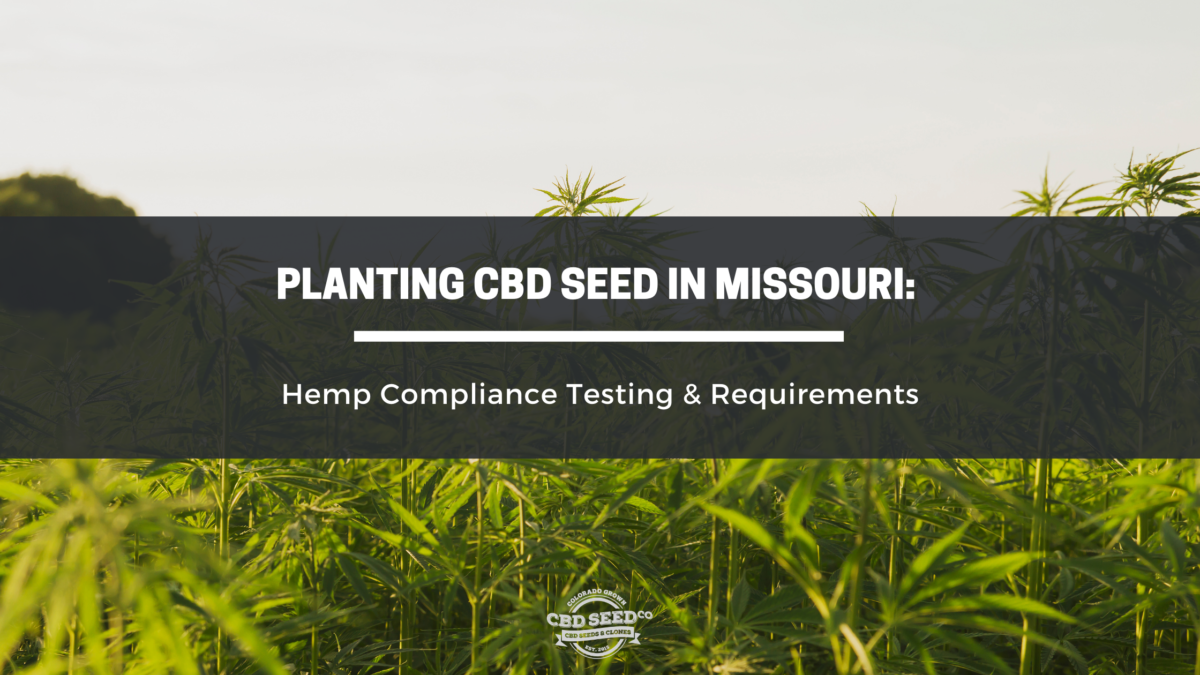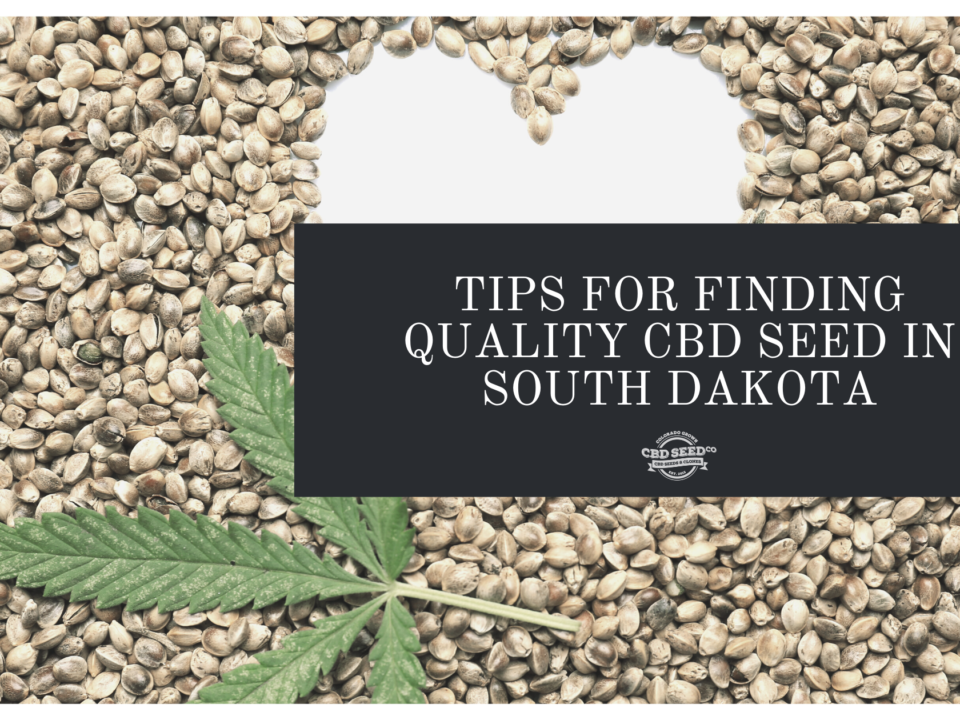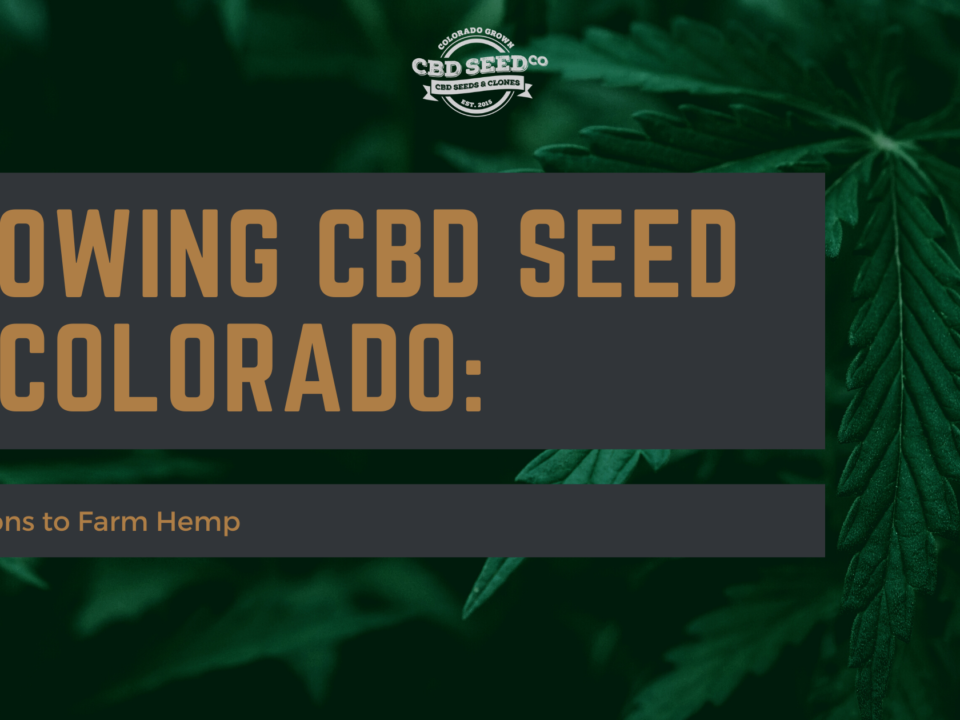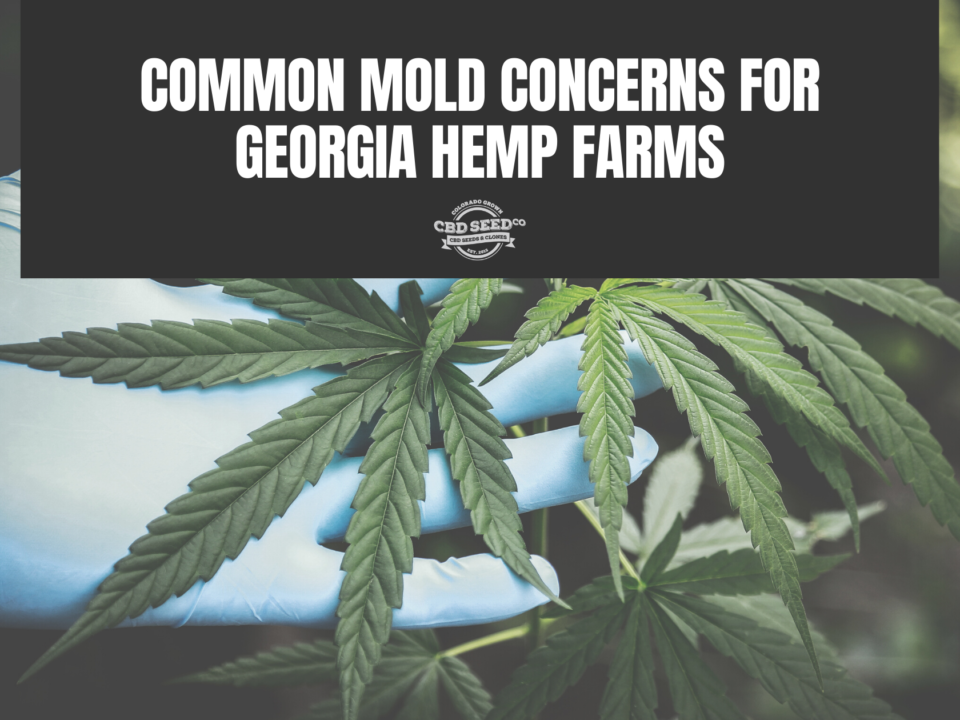Planting CBD Seed In Missouri: Hemp Compliance Testing & Requirements

Planting CBD Seed In Texas: How to Sell Your Hemp Biomass
October 20, 2020
Planting CBD Seed In Vermont: Choosing Your Hemp Irrigation System
October 22, 2020Now that the 2018 Farm Bill has legalized hemp cultivation on the federal level, hemp farmers have to undergo licensing and understand the legal restrictions when cultivating this crop. With strict hemp compliance regulations outlined in the 2018 Farm Bill, additional regulations have also been placed on farmers by each prospective state. For hemp farmers in Missouri, you can find the rules and regulations for legal hemp cultivation here. One of the most important regulations you’ll want to understand is the testing and compliance requirements established by Missouri and the federal government. About a year ago, the USDA released its interim rules regarding hemp cultivation which will serve as the federal compliance standard until November 1, 2021. The 161-page document details hemp compliance testing and requirements which we summarize here for farmers interested in planting CBD seed.
Hemp Compliance Testing Rules In Missouri
The passing of the 2018 Farm Bill made hemp cultivation and hemp-derived products legal but with a significant restriction that hemp must not contain more than 0.3% THC. In order to ensure all farmers meet this expectation, the department of agriculture in Missouri and all other 49 states must establish their own hemp compliance, licensing, and testing plan. Each state’s hemp program must be submitted to the USDA for approval. However, states aren’t required to develop their own plan– farmers interested in hemp cultivation that live in a state without a specific regulatory plan can apply for licensing from the federally-run plan. The USDA released their interim hemp rule last year to help better establish how testing and compliance will work.
The USDA Interim Hemp Rule
According to the interim hemp rule released by the USDA in 2019, states and tribes are required to collect samples from every batch of hemp farmers plan on harvesting. While some states have placed stricter standards on hemp testing, Missouri maintains the same standards as the USDA. All farmers must also conduct hemp testing 15 days prior to harvest. This crucial deadline means that your hemp crop must test for 0.3% THC or less on this date. Samples are collected by a USDA-approved sampling agent or law enforcement agent which is taken from the top 1/3 flower portion of the plant. Hemp farmers are responsible for paying for sampling fees and testing.
The interim rule also states that hemp compliance testing has to be completed in a DEA-registered lab. That means if you were previously using a third-party lab, you’ll need to find a DEA-registered lab instead. These labs test THX using a post-decarboxylation test and include the total amount of delta-9 THC and THCA.
Hemp Crops That Test Over Legal THC Limit
It can be any hemp farmer’s worst fear to discover their crops’ THC level is too high. In any case, the first thing you’ll want to do is request another round of testing in order to ensure no errors were made. If your second sample still comes back too high, your entire crop will be considered and treated like marijuana. You’ll have to dispose of the crop based on DEA standards.
In addition to destroying your crops, if your hemp contains more than 0.5% THC you’ll, unfortunately, receive a Notice of Violation from the USDA which details a corrective plan that is required for you to follow. If a hemp farmer receives more than three violations in a five-year period, you won’t be able to legally grow hemp for the next five years. If your plants test between 0.3% and 0.5% THC, you won’t receive these notices and there will be no violations assessed.
Creating a Hemp Testing Plan for Missouri Farms
Being proactive is the best option for ensuring your hemp is compliant. We recommend testing for THC early and as often as possible. After just the first few weeks of flowering, it’s a good idea to start testing at least once a week. This can give you the data you need in order to understand your THC levels and the opportunity to take action if your crops start running hot. THC levels will quickly rise in the last couple of weeks before you harvest so be aware of this fact. As you get closer to harvest, testing more and more often is ideal since it can make a huge difference in compliance.
While your final samples may be required to be tested in a DEA-registered lab, you can use a third-party lab for your weekly tests during grow season. Larger-scale farms can opt to invest in their own testing equipment if this is a better financial option. Also, be aware that other tests are required for the success of your hemp farm– testing soil conditions for heavy metals and pesticides is important to better prepare before planting your CBD seed. It’s also a good idea to consider testing your hemp for terpenes, flavonoids, and contaminants after harvest to provide this information to buyers.
Choosing the Right CBD Seed for Your Missouri Farm
Another great strategy for ensuring your hemp crops are compliant is investing in the right CBD seed for your farm. Always find a reputable seed provider that can provide you with COAS that showcase high CBD to low THC ratios. Having premium genetics that is low in THC and has been bred for this purpose can help you alleviate some of the stress tied to compliance.
Work with Missouri’s Trusted CBD Seed Supplier
CBD Seed Co. is honored to be the trusted CBD seed supplier serving the state of Missouri. Our team is happy to discuss compliance testing with you and help you develop the right plan for your farm. For more information regarding hemp compliance testing, please contact us!





